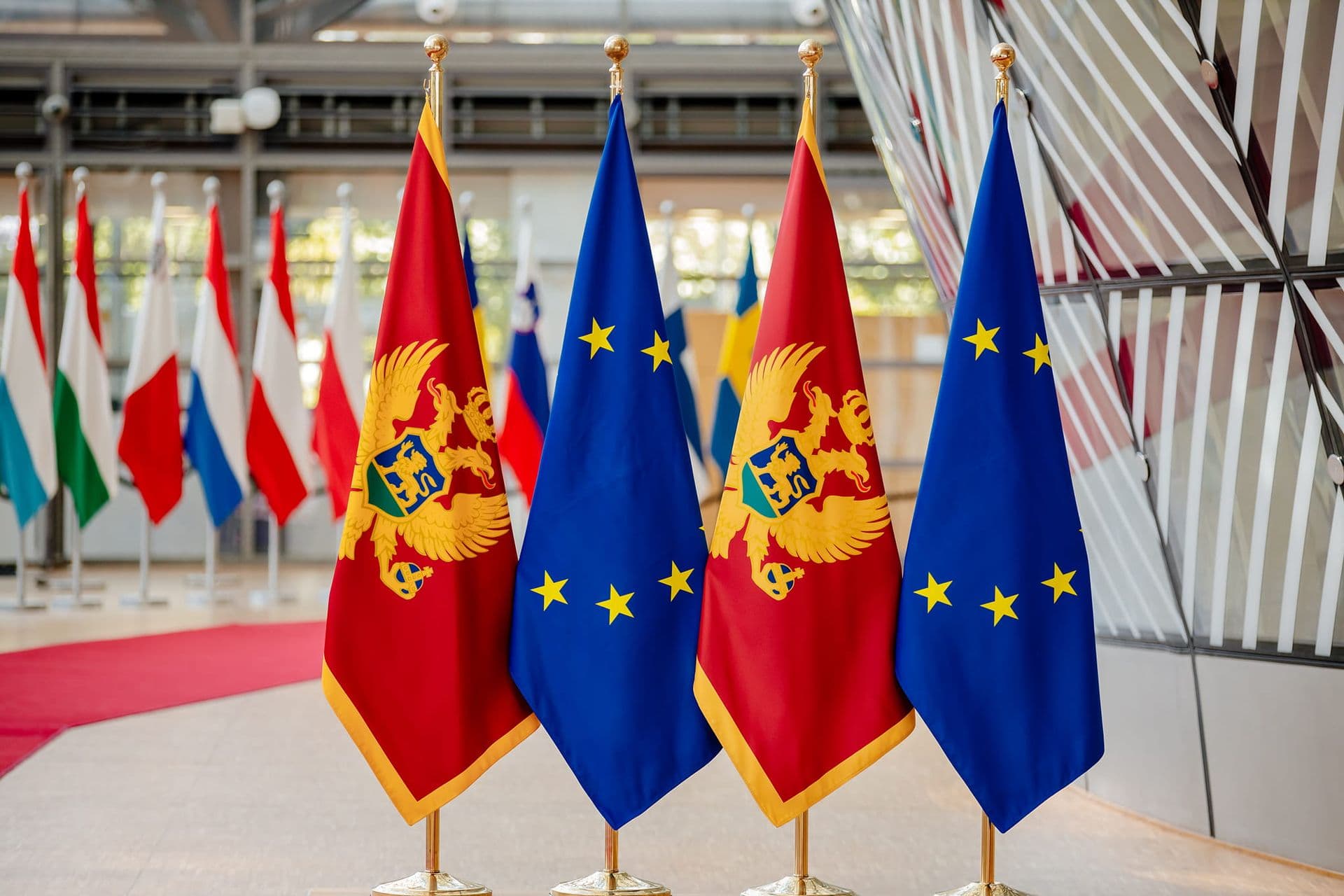Lifestyle
Montenegro Achieves Major Progress in EU Integration Rankings

Montenegro has significantly improved its standing in the European integration process, achieving an average score of 3.63 in this year’s European Commission Progress Report. This marks a substantial advancement compared to previous years, especially 2023, when the country faced challenges. Such progress reinforces Montenegro’s position as a leader in EU integration, a status it has held for some time.
During a press conference in Brussels, Marta Kos, the European Commissioner for Enlargement, highlighted Montenegro’s achievements. She stated that the country is on the verge of entering the accession agreement stage, solidifying its top position among nations seeking EU membership. “Montenegro is the furthest along in the EU accession process, having made significant strides in necessary reforms over recent years,” Kos noted.
Echoing these sentiments, Kaja Kallas, the head of European diplomacy, emphasized that Montenegro is the most prepared candidate for EU membership. She indicated that the expansion of the Union within the next few years is a realistic option.
Montenegro’s progress is reflected in the commendable ratings received in six chapters of the report, which earned a score of five, denoting “significant progress.” These chapters include 31 (EU’s external, security, and defense policy), 9 (financial services), 32 (financial supervision), 3 (the right to establish businesses and freedom to provide services), 6 (economic law), and 7 (intellectual property law).
Notable Improvement in Readiness Levels
A crucial aspect of this year’s report is that Montenegro did not receive any “weak” evaluations, contrasting sharply with the previous year when three chapters were marked as having “no progress.” The significant average score of 3.45 for overall readiness indicates that Montenegro has reached its highest level of preparedness to date for EU accession.
The European Commission has also noted an increased readiness in two pivotal chapters: 23 and 24. The current status in these areas suggests they are closer to being closed compared to previous years, an encouraging sign for Montenegro’s EU aspirations.
Concerns Remain Despite Progress
Despite the overall positive assessment, there are still reasons for caution, particularly concerning chapters 23 (judiciary and fundamental rights) and 24 (justice, freedom, and security). The report indicates that these chapters remain the most problematic, having received lower evaluations than last year. Specifically, both chapters were rated as “moderate progress,” with chapter 23 showing some improvement, while chapter 24 was noted for limited advancement.
Lower ratings were also assigned to chapter 10, which addresses the information society and media. Montenegro had provisionally closed this chapter at the Intergovernmental Conference in Brussels, underscoring the need for continued focus in these critical areas.
The European Commission highlights the importance of transparency and merit-based selection in the judiciary, particularly for judges and prosecutors, as essential obligations in chapters 23 and 24. The prolonged stagnation in advancing the rule of law is a cause for concern. The EK report provides concrete recommendations, emphasizing the need for transparent procedures in filling judicial positions, including the Constitutional Court, Judicial Council, and Prosecutorial Council.
To enhance the effective functioning of the judiciary, the report suggests targeted measures to reduce backlog cases across all courts, particularly in the Higher Court in Podgorica and the Administrative Court of Montenegro. These outcomes will be closely monitored in the lead-up to the next report.
Recommendations also extend to the fight against corruption, where the necessity to improve the balance of investigations and convictions for high-level corruption is highlighted. The report specifies which laws require amendments to prevent unjustified delays in criminal proceedings.
In summary, while Montenegro has made significant strides in its EU accession journey, substantial challenges remain, particularly in the areas of judiciary reform and anti-corruption efforts. The European Commission’s insights serve as both encouragement and a reminder of the work still needed to ensure Montenegro’s successful integration into the European Union.
-

 Entertainment3 months ago
Entertainment3 months agoAnn Ming Reflects on ITV’s ‘I Fought the Law’ Drama
-

 Entertainment4 months ago
Entertainment4 months agoKate Garraway Sells £2 Million Home Amid Financial Struggles
-

 Health3 months ago
Health3 months agoKatie Price Faces New Health Concerns After Cancer Symptoms Resurface
-

 Entertainment3 months ago
Entertainment3 months agoCoronation Street’s Carl Webster Faces Trouble with New Affairs
-

 Entertainment3 months ago
Entertainment3 months agoWhere is Tinder Swindler Simon Leviev? Latest Updates Revealed
-

 Entertainment4 months ago
Entertainment4 months agoMarkiplier Addresses AI Controversy During Livestream Response
-

 Science1 month ago
Science1 month agoBrian Cox Addresses Claims of Alien Probe in 3I/ATLAS Discovery
-

 Health4 months ago
Health4 months agoCarol Vorderman Reflects on Health Scare and Family Support
-

 World2 weeks ago
World2 weeks agoBailey Announces Heartbreaking Split from Rebecca After Reunion
-

 Entertainment4 months ago
Entertainment4 months agoKim Cattrall Posts Cryptic Message After HBO’s Sequel Cancellation
-

 Entertainment3 months ago
Entertainment3 months agoOlivia Attwood Opens Up About Fallout with Former Best Friend
-

 Entertainment2 weeks ago
Entertainment2 weeks agoCoronation Street Fans React as Todd Faces Heartbreaking Choice





















